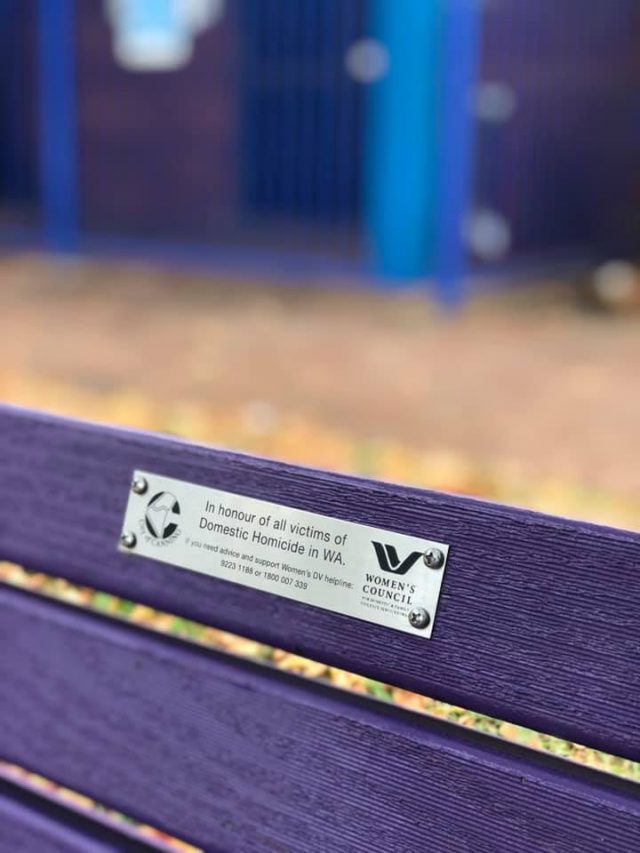
It may seem like a small touch to the front of the Rostrata Family Centre, but a new purple bench has joined others around the world to promote awareness of domestic violence.
The event comes as more effort is put into petitioning the government to take more direct action in preventing it.
The city unveiled the bench last week along with members of the Rostrata Family Centre, representatives from local non-profit organisations and residents in an effort to address the ongoing trauma of domestic violence and the hopes to end it.
First started in Novia Scotia, Canada, the benches were originally called Barb’s Benches – put in place by friends and family in 2015 to mark the 25th anniversary of Barb Baillie by her husband.
Since then they have spread across the world, with an ongoing campaign seeing many pop up across Western Australia over the last year.
Rostrata Family Centre manager Dianne Graves said the launch and event was a great opportunity for dialogue between different parts of the community.
“It was a beautiful morning, where community came together to talk about the significance of the Purple Bench project, an initiative of The Women’s Council, in remembrance of those women who have lost their lives at the hands of domestic and family violence and as a symbol that our family centre is a safe place for women and children to come for help,” she said. The organisations involved have been campaigning continuously to raise awareness over domestic violence and to ensure the issue is not forgotten.
Ruah Community Services chief Debra Zanella said visual reminders are just part of maintaining efforts from all parties.

“Violence against women is a serious issue – it is never acceptable, and it is preventable,” she said.
“If we are serious about stopping family and domestic violence, we need a holistic approach – from government, from business and from the community. It is time to end domestic violence.”
Zonta House chief executive Kelda Opperman said the fact that domestic violence remains a serious issue within communities shows that no amount of reminders like the purple benches is enough.
“Women are dying and more are dying every year – their faces are all over the news,” she said. “How many more need to die to constitute evidence?
How do we get long-term funding commitments to make a real difference?”
The benches themselves act as a commemoration and a reminder of the effect domestic violence has on families, especially women, while marking the memories of those that have lost their lives.













